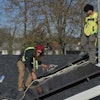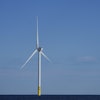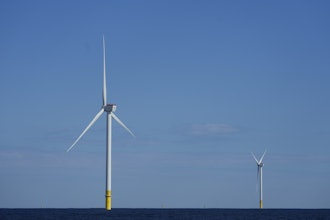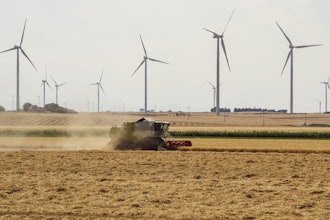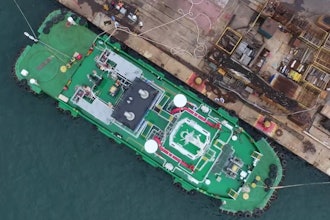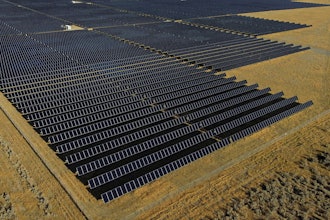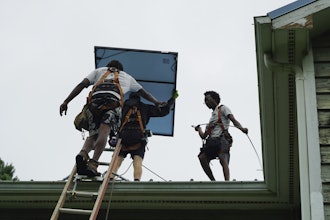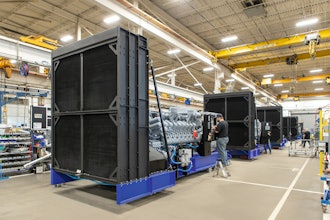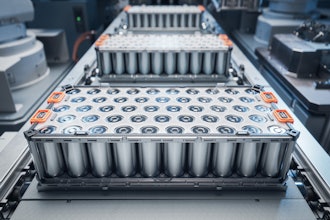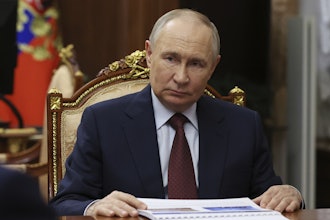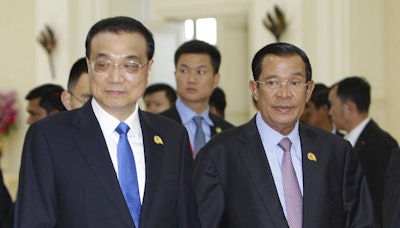
Cambodia's largest hydropower project officially began producing electricity Monday as the country tries to increase its energy capacity to reduce energy imports and help jump-start industrial expansion.
Prime Minister Hun Sen inaugurated the 400-megawatt Lower Sesan II hydropower dam in the northeastern province of Stung Treng. The project, constructed on a build-operate-transfer basis, will boost the country's production of electricity by 20 percent, according to the Ministry of Mines and Energy.
It was built over four years at a cost of nearly $800 million and is a joint venture of China's Hydrolancang International Energy, which has a 51 percent stake, Cambodia's Royal Group with 39 percent and Vietnam's EVN International with 10 percent.
The dam is expected to bring in almost $30 million in tax revenue yearly. Ownership will be handed over to the government after 40 years.
Opponents say the dam will damage the biodiversity of two tributaries of the Mekong River and devastate the livelihoods and homes of thousands of people. As many as 100,000 people could lose the ability to catch fish.
The dam is the seventh commercial-scale hydropower dam in Cambodia, bringing hydropower production to 1,328 megawatts.
Hydropower supplies 45 percent of Cambodia's electricity consumption, followed by 35 percent from coal-fired power plants and about 5 percent from petroleum and alternative energy.
About 15 percent of electricity must still be purchased from neighboring countries. High utility prices, caused by the shortfall in local supply, are a major obstacle to Cambodia attracting foreign investment.
A government report last year estimated that Cambodia could generate as much as 10,000 megawatts from hydropower, and development of additional projects is underway.
China is Cambodia's largest investor in developing hydroelectric dams and other infrastructure projects.
 In this Jan. 10, 2018, file photo, China's Premier Li Keqiang, left, heads to the meeting room with his Cambodian counterpart Hun Sen before the opening of the Mekong-Lancang Cooperation forum Leaders Meeting in Phnom Penh, Cambodia. Image credit: AP Photo/Heng Sinith, File
In this Jan. 10, 2018, file photo, China's Premier Li Keqiang, left, heads to the meeting room with his Cambodian counterpart Hun Sen before the opening of the Mekong-Lancang Cooperation forum Leaders Meeting in Phnom Penh, Cambodia. Image credit: AP Photo/Heng Sinith, File
